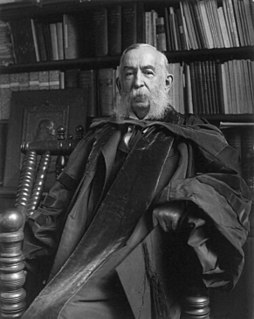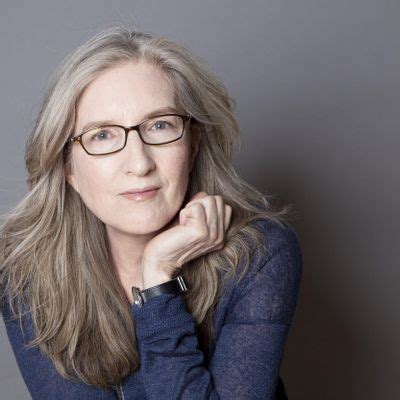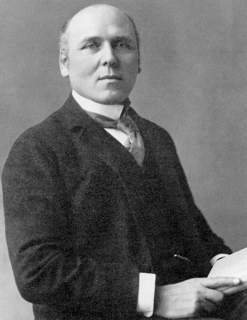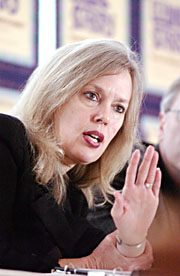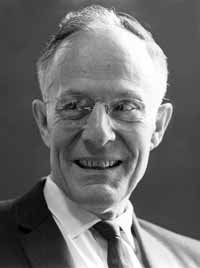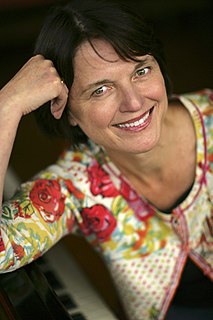A Quote by Daniel Coit Gilman
It is one of the noblest duties of a university to advance knowledge, and to diffuse it not merely among those who can attend the daily lectures—but far and wide.
Related Quotes
the truth and value of a theory does not depend on the number of people who are interested in it - otherwise you might compare the number of people who follow the predictions of astrologers in the daily press with those who attend lectures by Einstein, and conclude that astrology was more valuable and true than physics.
The best things are nearest: breath in your nostrils, light in your eyes, flowers at your feet, duties at your hand, the path of God just before you. Then do not grasp at the stars, but do life's plain common work as it comes certain that daily duties and daily bread are the sweetest things of life.
General education is the best preventive of the evils now most dreaded. In the civilized countries of the world, the question is how to distribute most generally and equally the property of the world. As a rule, where education is most general the distribution of property is most general.... As knowledge spreads, wealth spreads. To diffuse knowledge is to diffuse wealth. To give all an equal chance to acquire knowledge is the best and surest way to give all an equal chance to acquire property.
In general, I avoided giving lectures or attaching myself while abroad to a university. To learn what I wanted to know, I went instead to rural communities and onto actual farms. Talk with university people, government officials and U.S. personnel stationed in the country was much less rewarding for me.
Ever since the beginning of modern science, the best minds have recognized that "the range of acknowledged ignorance will grow with the advance of science." Unfortunately, the popular effect of this scientific advance has been a belief, seemingly shared by many scientists, that the range of our ignorance is steadily diminishing and that we can therefore aim at more comprehensive and deliberate control of all human activities. It is for this reason that those intoxicated by the advance of knowledge so often become the enemies of freedom.
